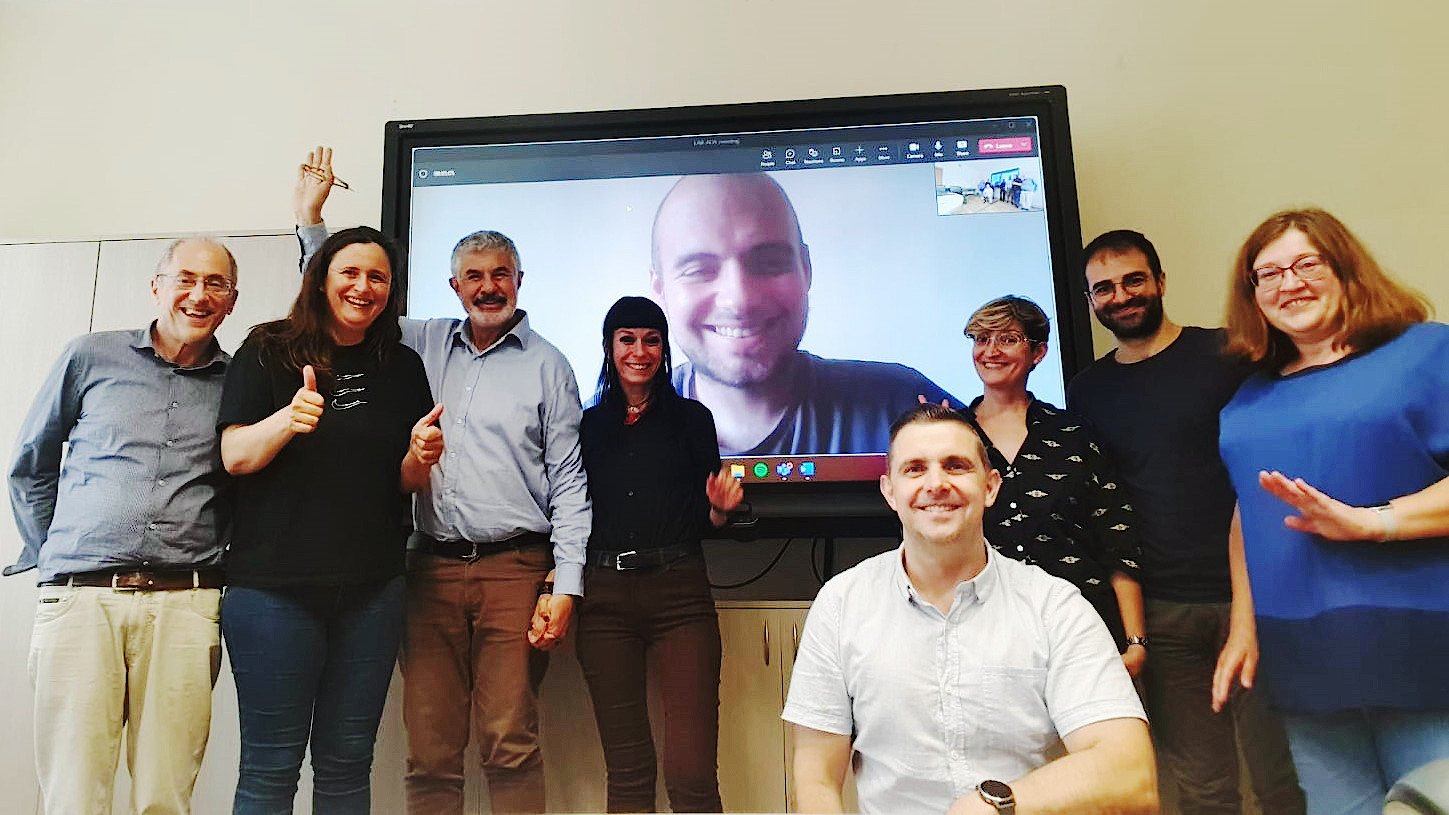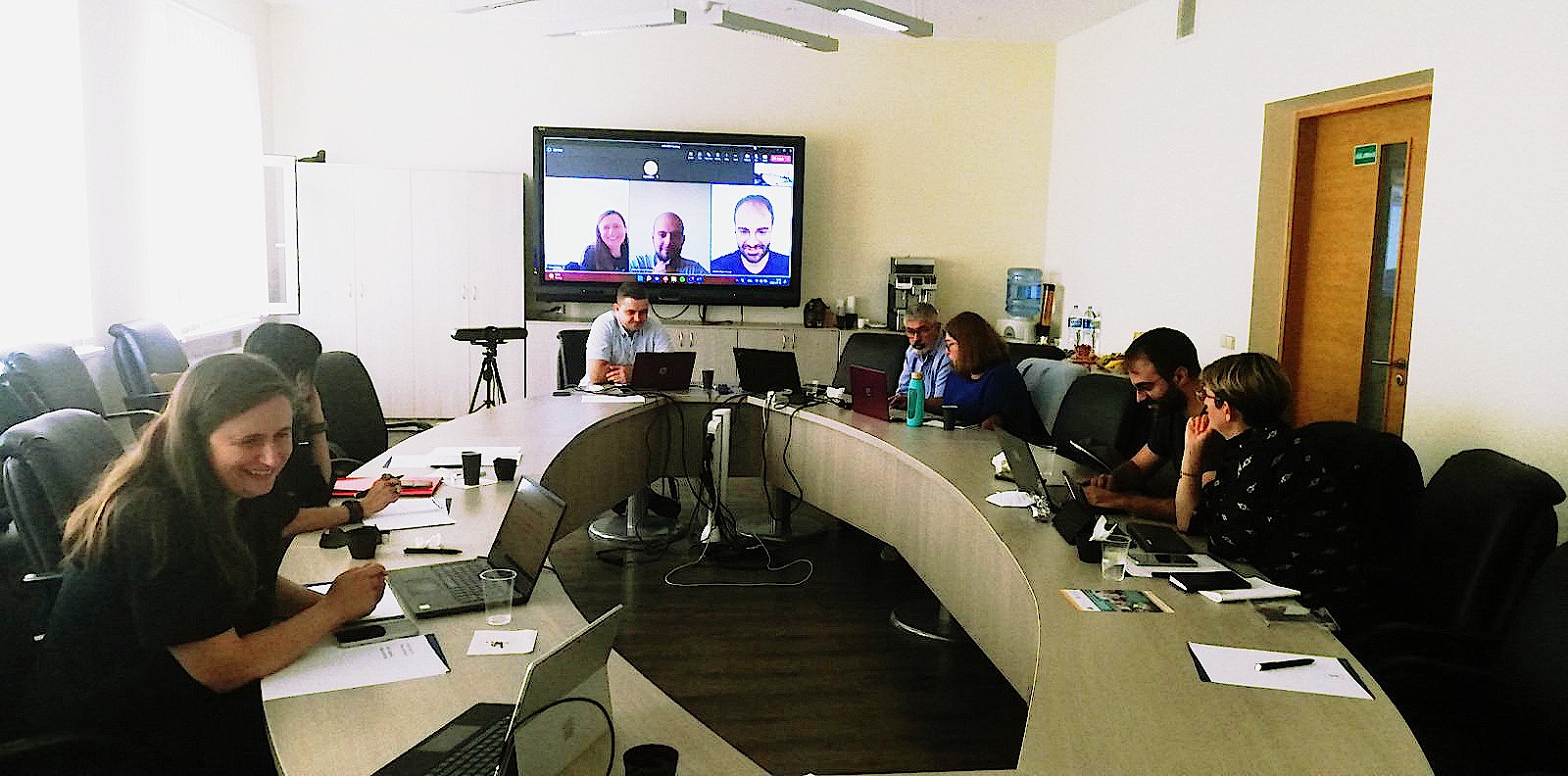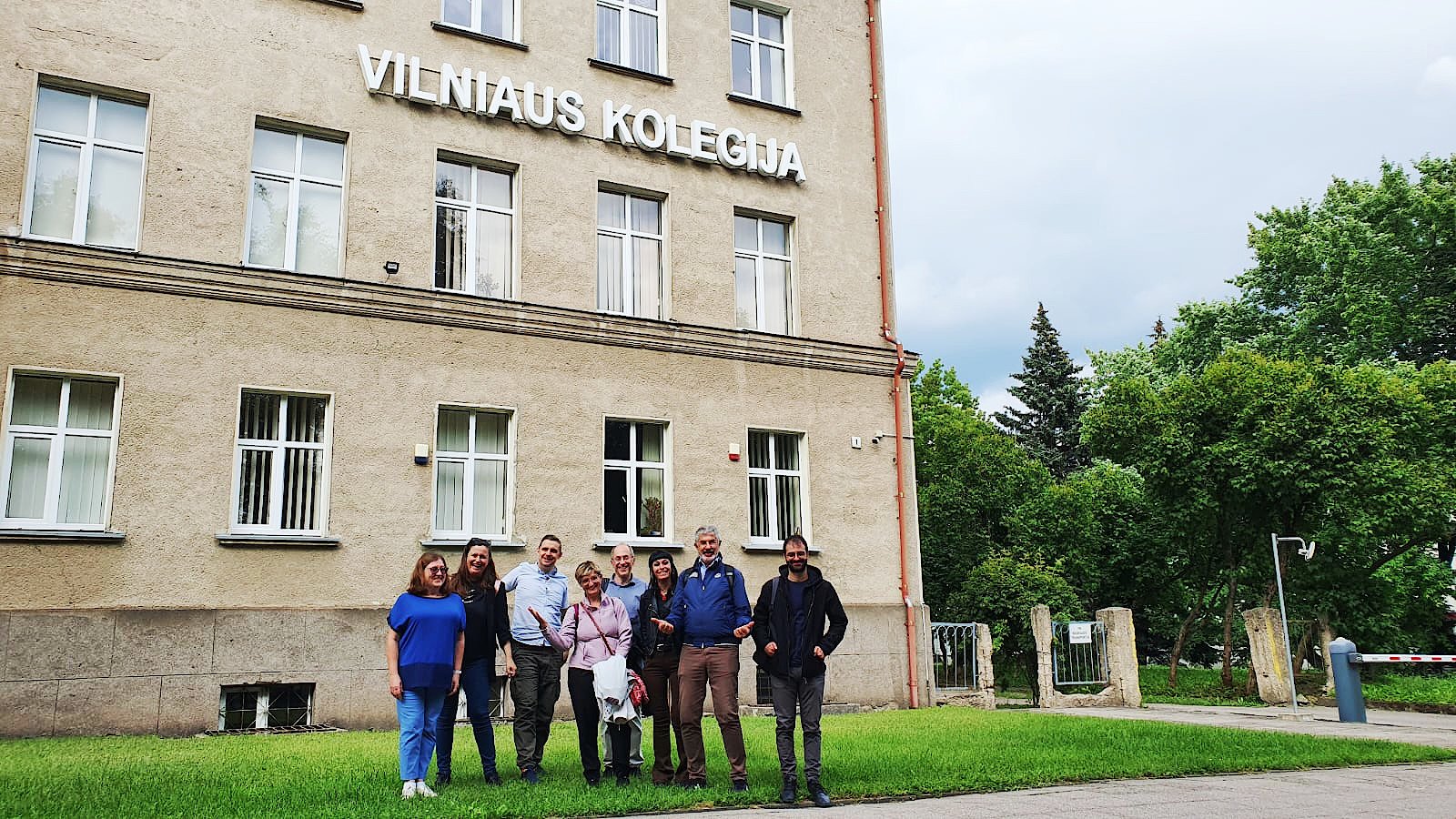LAB for Adults non-formal Digital Awareness (LAB-ADA)
Συμμετοχή στο Ευρωπαϊκό Πρόγραμμα Erasmus
ΠΕΡΙΓΡΑΦΗ ΚΑΙ ΣΤΟΧΟΙ
Το έργο LAB-ADA θέτει τον γενικό στόχο να αναπτύξει μια καινοτόμο προσέγγιση μάθησης στο Διαδίκτυο για την προώθηση και τη διατήρηση των δυνατοτήτων ενηλίκων με χαμηλή ειδίκευση να αποκτήσουν αρκετή γνώση, καθώς και για την ενίσχυση της ευημερίας και της ψυχικής τους υγείας μέσω της απόκτησης των απαραίτητων δεξιοτήτων που θα τους βοηθούσαν να κάνουν αλλαγές αποτελεσματικά. κυριαρχήσουν στη ζωή τους και εισέλθουν στην επιθυμητή αγορά εργασίας. Το έργο αυτό στοχεύει:
στη δημιουργία εργαλείων για ενήλικες και εκπαιδευτές ενηλίκων, τα οποία αποτελούνται από μη τυπικές δυνατότητες ψηφιακής μάθησης.
να επεκτείνει την προσφορά μαθημάτων υψηλής ποιότητας και να αυξήσει τη συμμετοχή μέσω αποτελεσματικών στρατηγικών ευαισθητοποίησης, προσανατολισμού και κινήτρων για ομάδες ενηλίκων εκπαιδευομένων που χρησιμοποιούν τα αποτελέσματα.
δημιουργία ενός ολιστικού πλαισίου και ενός αναπαραγόμενου μοντέλου εκπαίδευσης για τη διαχείριση της υιοθέτησης νέων δεξιοτήτων μεταξύ των μελών του προσωπικού των οργανισμών και των εργαζομένων με χαμηλή ειδίκευση.
About the Project
LAB-ADA project sets the overall goal to develop an innovative web learning approach for advancing and sustaining low skilled adults possibilities to gain enough knowledge, also to foster their well-being and mental health through the acquisition of needed skills that would help them make changes effectively, master their life and enter the desirable job market. This project aims to:
create a tools for adults & adult educators, which consist of non-formal digital learning possibilities;
expand the offer of high-quality courses and increase participation through effective awareness, orientation and motivation strategies for groups of adult learners using the results;
build a holistic framework and a replicable training model to manage the adoption of new skills among staff members of the organisations and low skilled workers.
Most low-skilled adults take part in learning to advance their career (see below). However, learning opportunities do not always equip them with the skills needed for the labour market. Only two in three adults think that participation in training helped them achieve positive employment outcomes, such as performing better in their current job, being promoted, getting a (new) job or a higher salary. We will work in the innovation to make adult learning more interesting and relevant for adults with low skills. In this kind of environment adults with low skills need support in identifying their training needs and in understanding which type of training is most appropriate for them. Additionally, they need advice on how to tackle any barrier to participation, including limited finances, lack of time due to family commitments and distance to the training location. And such comprehensive advice and guidance services specifically targeted at adults with low skills are rare. So, the idea is to tailor some advice using different media like books or interactive resources or videos and a help desk.
EXPECTED IMPACT:
low skill adults will have all possibilities of non-formal learning in one tool
adult educators will have tool with all digital non-formal learning opportunities
created interesting and relevant learning opportunities
programme for low skilled adults with possibilities to be involved in non-formal learning.
EXPECTED RESULTS AS A PRODUCT OF THE PROJECT ACTIVITIES:
Mobilisation of the target groups: after an analysis of the needs of all local formative institutions, labour dedicated institutions and international data, each partner will involve the huge number of target groups as teachers, trainers, tutors, personnel involved in active employment policies, figures involved in the education processes of adults and adults (teacher, training designer, content developer), counsellor, mentors in order to activate them in the search of new ways and existing digital non-formal learning possibilities to teach the new skills requested by labour market of the future;
A bunch of surveys: we expect to give the new instrument to help low skilled adults to try non-formal digital learning possibilities.
Increased use of digital technologies at work. A it is raising the demand for new skills along three lines. First, acquire of generic ICT, second, the use of ICT products and services, third, the use of ICTs is changing the way work is carried out and raising the demand for ICT-complementary skills.
Results realisation: outputs represents a real "toolboxes" for those who are involved in creating the new skills useful for the future labour market and those which will learn these skills.





